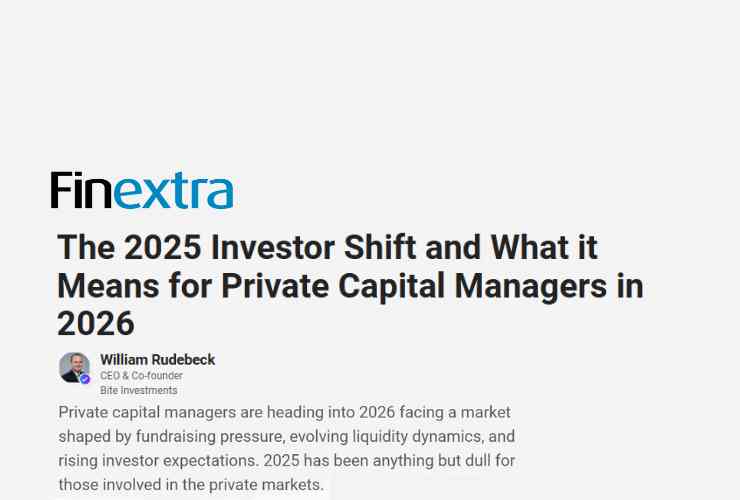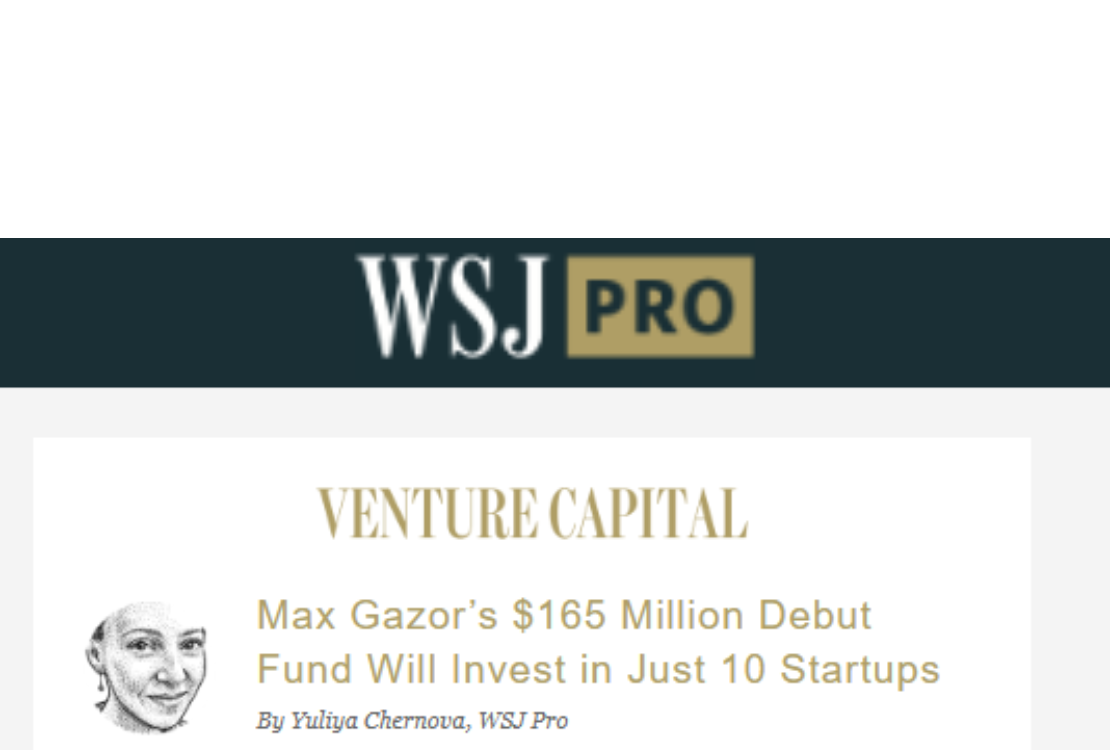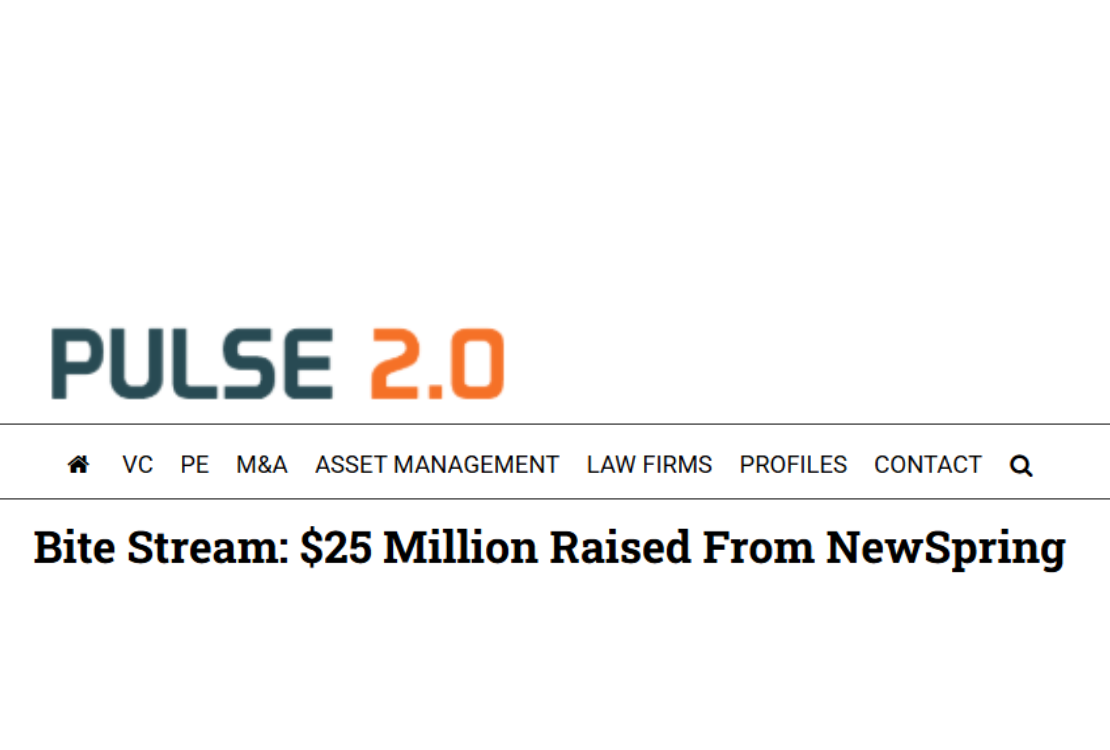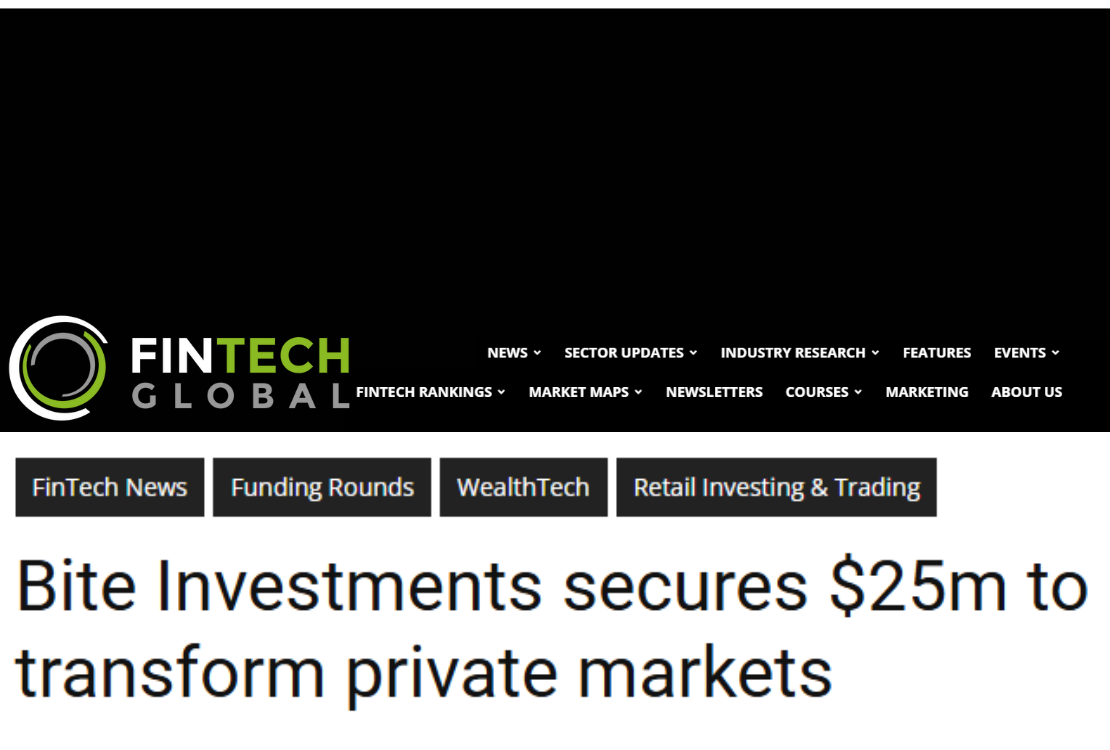End-to-end digitisation for GPs reduces administrative costs, streamlines investor processes and provides them with the tools to access an ever-expanding wealth management market, says Bite Investments CEO William Rudebeck.
How would you describe fundraising conditions within private markets today?
As low interest rates and volatile listed markets persist into 2022, investors are increasingly turning their attention to private markets and alternative assets in search of superior returns. According to data from Preqin, the alternative investment industry’s assets under management are set to surpass $23 trillion by the end of 2026. That surge in demand is global, with Europe and North America sharing the largest concentration of private capital fundraising.
Of course, increased interest in private markets also stems from the historic outperformance of these asset classes when compared to their public market counterparts. Private equity has proven to be the strongest performing and least volatile alternative asset class of all over the last three decades, according to McKinsey. It is also expected to grow by more than 15 percent a year up to 2025.
Last year in particular stood out when it came to private markets fundraising, with limited partners investing more than $1 trillion in private capital funds. Meanwhile, it is widely believed that 2022 is poised to set new fundraising records once again.
What are the challenges that registered investment advisers and independent financial advisers face in accessing these asset classes?
These advisers have historically been shut out of the alternative investment sector, primarily because of the high minimum investments required. However, many of the operational hurdles associated with accessing these asset classes can be addressed through technology, for example feeder funds, as well as digital onboarding and subscription processes, such as those that we have developed at Bite. Indeed, the difficulty that this advisory community has faced in accessing private markets opportunities is precisely the challenge or pain point that Bite is looking to solve.
Equally, what are the challenges that GPs face when it comes to tapping into this demand?
GPs and wealth managers currently have resource constraints that make it difficult or operationally inefficient to focus on the retail channel. With technology and structuring solutions, however, including feeder funds and aggregation vehicles, this is starting to change. But to tap into the vast opportunities that these new pools of capital represent, alternative asset managers need to provide a fully digital end-to-end user experience to their investor base.
As it stands, the wealth management market currently only allocates approximately 3 percent to 5 percent of total investment portfolios to alternatives. There is huge potential for this to climb.
What about appetite from high-net-worth individuals and the wealth management market? What is driving that?
Institutional investors have typically developed allocations of between 20 percent and 30 percent to alternatives over the last 30 years. The primary factor driving those allocations has been the ability to improve the overall risk and return characteristics of a portfolio. The low interest rate environment and market volatility that we are currently experiencing, as well as growing personal financial wealth, are additional factors driving high-net-worth investors to place an ever-greater emphasis on diversification.
How can digitisation help resolve some of those challenges?
A seismic shift is under way in the private capital industry. For decades, fundraising and deployment of those funds into private companies has largely been an analogue, manual process founded on face-to-face interaction and in-person relationships. The fintech revolution had, until recently, all but bypassed private capital markets.
The pandemic changed those rules of engagement, however. Business activity was forced online through protracted lockdowns, and private markets firms adapted well to the new socially distanced paradigm. Clearly, the digitisation of private capital management is a welcome development and will improve the industry’s already good standing with the institutional and, increasingly, high-net-worth investor pool that supports it. Enhanced data access and operational efficiencies are the main drivers for that digitisation.
Is digitisation more prominent in certain parts of the market?
We have conducted research with Acuris that found that big firms are much further along in terms of their digital adoption and expectations. They are also investing significantly more in that digitisation process. This means, of course, that smaller firms can still capitalise on a first-mover advantage. Those that fail to embark on this journey, however, will quickly find themselves left behind amid mass adoption.
How are the digital products you offer evolving and what impact do you expect those developments to have on the market?
Our technology is evolving every day and we are constantly working on improving the feedback loop to ensure our engineers are receiving information as to what is most important for the marketplace. Meanwhile, one of our main projects on the technology side has been the offering of a white-label, highly configurable software-as-a-service product. This SaaS product will enable GPs and wealth managers to launch their own platform to digitise their alternative fund distribution; compliantly streamline and scale the distribution of private markets investment products; save time and resources; and improve the overall investor experience. We are really excited about this development and believe that it will revolutionise the alternative investment industry.
How open, able and willing have you found private markets practitioners to be when it comes to adopting digital technologies?
We are actively engaged with many of the world’s largest and most sophisticated managers of private market strategies who are very interested in digitising how they engage with their existing and potential LPs and are keen to do so on their own terms. It is clear that creating their own digital marketplace where LPs can do due diligence and invest in their funds is a priority for them.
What do you believe the future holds? Just how far could the digitisation of private markets go and what would the ultimate benefit be for the asset class?
Alternatives are one of the very few sectors within the capital markets ecosystem that have not yet fully embraced digitisation. Bite is proud to be at the forefront of this global transformation within the alternative asset management industry. We believe that the ultimate benefit will be a completely frictionless trade, via technology, between GPs and their LPs, whether those LPs are institutions or whether they are individuals.
About Bite Investments
Bite Investments provide a seamless end-to-end investment process. Our investor solutions software enables asset managers to provide a fully digital user service to their investor base, whilst our online investment platform allows the full spectrum of investors to invest in top-tier alternative investment funds in a streamlined process.




